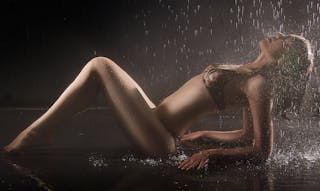The release of Frozen 2 has sparked a lot of speculation and discussion about the sexuality of the film's main character, Elsa. Many fans have been wondering if Elsa is a lesbian or asexual, and the movie has left some clues that could potentially support either theory. In this article, we'll dive into the debate and explore the evidence for both possibilities.
Are you curious to delve into the romantic entanglements of a certain ice queen in the latest Frozen installment? There's a lot to uncover about Elsa's love life, and it's just as intriguing as the ice powers she possesses. If you're ready to uncover all the juicy details, take a deep dive into the exciting world of romance and adventure at Devilish Desire. You won't want to miss out on the thrilling escapades that await!
Elsa's Journey and Representation
Check out these SkyPrivate alternatives and see which one works best for you!
When Frozen was released in 2013, Elsa quickly became an iconic character for many reasons. Not only did she break the mold of traditional Disney princesses by being independent and powerful, but she also resonated with many LGBTQ+ viewers who saw her journey as a metaphor for coming out and accepting oneself. With the release of Frozen 2, fans were eager to see how Elsa's story would continue and if her sexuality would be addressed more directly.
Check out some free brunette cam sites and spice up your day here.
The Case for Elsa Being a Lesbian
Discover the impact of porn on Apple TV
Throughout Frozen 2, there are subtle hints that could suggest Elsa's attraction to women. One of the most notable moments is when Elsa sings "Into the Unknown," a powerful anthem about her desire to explore her true self. Many fans have interpreted the lyrics and emotions behind the song as a metaphor for coming out and embracing one's identity, which could hint at Elsa being a lesbian.
Additionally, Elsa's lack of romantic interest in any male characters throughout both films has led some fans to believe that she may be more interested in women. Her strong bond with her sister, Anna, and her dedication to her kingdom could also be seen as evidence of Elsa's potential queerness.
The Case for Elsa Being Asexual
On the other hand, some fans have argued that Elsa's lack of a romantic storyline could be a sign of her being asexual. Asexuality is a sexual orientation characterized by a lack of sexual attraction or desire, and it is often misunderstood or overlooked in mainstream media. Elsa's focus on her responsibilities as a queen and her personal growth journey could be seen as a reflection of her asexual identity, as she prioritizes other aspects of her life over romantic relationships.
Furthermore, Elsa's journey of self-discovery and acceptance could also align with the experiences of many asexual individuals who navigate societal expectations and pressures regarding romance and sexuality. Her independence and strength as a character could also be seen as a representation of asexuality, highlighting the diversity of experiences within the LGBTQ+ community.
The Importance of Representation in Media
Regardless of Elsa's specific sexuality, the discussions and debates surrounding her character are indicative of the importance of representation in media. LGBTQ+ individuals are often underrepresented or misrepresented in mainstream films and television shows, so the significance of a beloved character like Elsa potentially being queer or asexual cannot be understated.
For many viewers, seeing themselves reflected in characters like Elsa can be incredibly validating and empowering. It can also help to educate and raise awareness about different sexual orientations and identities, fostering a more inclusive and understanding society.
Final Thoughts
While the debate about Elsa's sexuality in Frozen 2 continues, it's clear that her character has resonated with many LGBTQ+ viewers. Whether she is ultimately confirmed to be a lesbian, asexual, or another sexual orientation, the impact of her representation in a popular Disney franchise cannot be overlooked.
As discussions about Elsa's identity continue, it's important to remember the significance of diverse representation in media and the positive impact it can have on individuals who see themselves in characters like Elsa. Ultimately, the power of storytelling lies in its ability to reflect and celebrate the rich tapestry of human experiences, including those of LGBTQ+ individuals.
- https://casual-dating-sites.andreachimenti.com/posts/best-girl-on-top-sex-positions-woman-on-top-sex-positions/
- https://best-casual-hookup-apps.patternismovement.com/posts/my-best-sex-ever-was-with-the-dj/
- https://location-dating.ua-sex.com/posts/transgender-men-answer-questions-about-sex-and-dating/
- https://top-hookup-platform.hankwilliamsmothersbest.com/posts/my-husband-and-i-defy-gender-roles-in-our-marriage/
- https://free-local-encounters-app.jershaanddup.com/posts/vanilla-sex-what-is-vanilla-sex/
- https://top-local-encounters-platform.hankwilliamsmothersbest.com/posts/how-to-sext-sexting-tips-for-sexting-your-partner/
- https://matchmaker.fu-direct.net/
- https://best-discreet-hookup-apps.prettygirlsmakegraves.com/posts/lesbian-erotica16-best-lesbian-and-samesex-erotic-novels/
- https://casual-dating-app.jershaanddup.com/posts/lubricant-best-sex-lube/
- https://free-dating-website.andreachimenti.com/posts/my-best-sex-ever-was-in-front-of-an-audience-at-a-sex-club/
- https://online-discreet-dating-websites.stylebytes.net/posts/
- https://top-meetup-app.wsmchicago.com/posts/15-sex-positive-celebs-we-love/
- https://top-discreet-dating-platforms.datingapps.shop/posts/huge-penis-sex-with-a-big-penis-and-what-its-really-like/
- https://top-local-hookup-websites.wsmchicago.com/posts/new-dating-app-bumble-forces-women-to-make-the-first-move/
